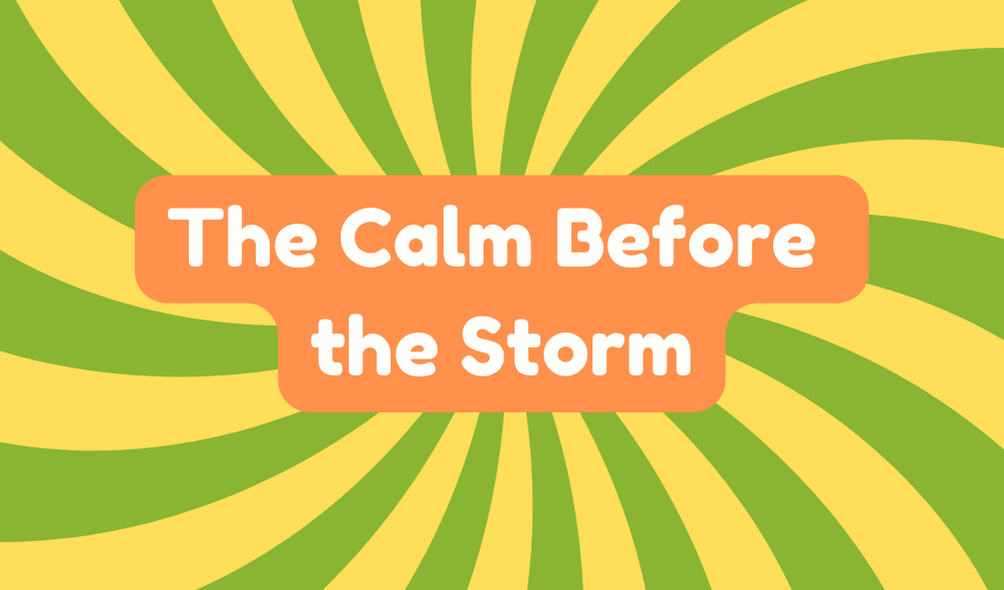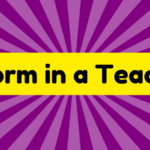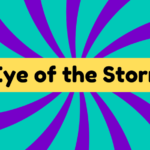"The calm before the storm" refers to the uneasy stillness often experienced before chaos erupts. This phrase embodies the deceptive nature of tranquility, highlighting how silence can mask underlying tension or foreboding. Originally linked to sailors' experiences, it captures the shift from serenity to upheaval. Common in literature and daily life, it underscores the unpredictability of events. Understanding this concept prepares one for potential disturbances around. Discovering more about its historical significance provides deeper insight into human psychology.
Synonyms
Although many may find comfort in the idea of a peaceful moment before disruption, it is essential to understand the synonyms that capture this notion. The concept of peaceful anticipation encompasses sentiments that subtly hint at an approaching disturbance. These terms reflect the underlying tension buildup:
- Tranquil pause
- Silent prelude
- Momentary serenity
- Quiet expectancy
- Stillness before upheaval
Recognizing these synonyms not only enhances communication but also fosters a deeper understanding of human psychology during critical moments. Each phrase embodies a distinct aura, reminding one that tranquility can be misleading, often lurking before chaos descends with an unexpected ferocity.
Example of Sentences
In recognizing the synonyms related to the peaceful moment before disruption, it is also important to illustrate this concept through practical examples. These sentences embody the calm anticipation often felt during pre-crisis stillness:
- The team savored the moment, knowing chaos was imminent after the meeting.
- She sensed the calm before the storm, as friends silently prepared for the debate.
- Observers could feel the tension rise, hidden beneath the tranquility of the crowd.
- The artist thrived in the pre-crisis stillness, envisioning a powerful performance ahead.
- Parents often dread the quiet that precedes their children's inevitable arguments, sensing the storm brewing.
Origin
The phrase "calm before the storm" has its roots in the experiences of sailors, who often noticed an eerie stillness just prior to a heavy tempest. This observation led to a deeper understanding of impending crises. The phrase gained historical significance, appearing in literary references dating back to the 1700s and particularly in the play "The Dumb Knight." As storms often herald chaos, this expression captures the volatile change from serenity to turmoil.
| Emotion | Context | Historical Reference |
|---|---|---|
| Anticipation | Calmness | Playwrights of the 1600s |
| Tension | Foreboding | Campaigns of 1812-1814 |
| Unease | Silence | James McQueen's writings |
Collocations
Understanding the phrase "calm before the storm" involves recognizing its common collocations, which illustrate its multifaceted nature. These expressions not only enhance comprehension but also evoke the dichotomy between stormy weather and peaceful moments.
- tranquility before conflict
- stillness before chaos
- silence preceding turmoil
- pause before the upheaval
- serenity overshadowed by tension
Through these collocations, one can grasp how fleeting calm can be, a reminder that tranquility often masks impending disturbance. Analyzing such phrases challenges the romantic notion of peace, revealing a reality where calmness can swiftly give way to crises.
How to Use in Everyday Language
Although many people often romanticize the notion of a peaceful pause, using the phrase "calm before the storm" in everyday language serves to highlight the tension that lurks beneath a facade of serenity. In everyday scenarios, such as family gatherings or workplace meetings, this phrase can effectively convey anticipated moments of conflict or emotional upheaval. Its emotional impact lies in its ability to remind individuals that beneath calmness, chaos may soon emerge. By incorporating this idiom into discussions, people can foster awareness of underlying dynamics, promoting clearer communication and helping to navigate potential challenges with a more realistic mindset.
Why Is It Still Relevant Today?
Why does the phrase "calm before the storm" continue to resonate in contemporary conversations? This expression captures the psychological impact of an impending crisis, reminding individuals of the tension underlying seemingly peaceful moments. In a fast-paced world, where uncertainties abound, recognizing these tranquil periods can influence decision-making and emotional preparedness. The societal implications are profound; understanding the "calm" fosters awareness of potential conflicts, encouraging proactive strategies to mitigate fallout. Consequently, this phrase remains relevant, serving as a crucial reminder of the unpredictable nature of life and the importance of mindfulness during changes, ultimately enhancing individual and collective resilience.







